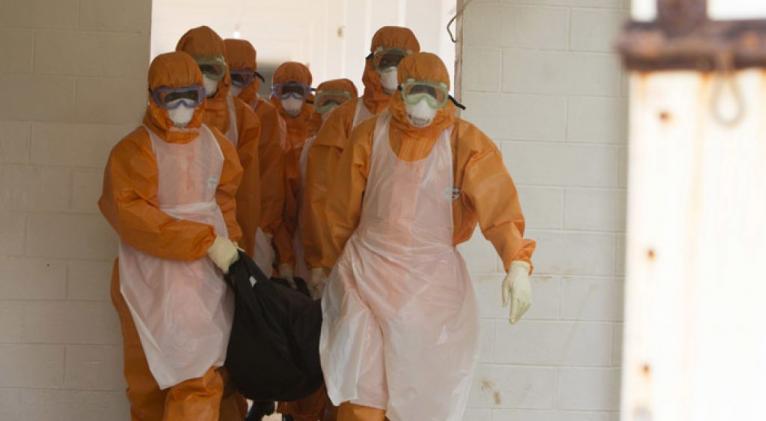Ebola: Has the world stopped caring?

While the outbreak has been extensively covered since summer, Google Trends indicates a drop in news coverage and public interest in the outbreak. All the while, the virus is still raging in the worst-affected areas of Liberia, Sierra Leone and Guinea.
Ivor Crotty, RT’s social media editor, said Ebola has been making headlines since September.
“When a traveler from Liberia became the first patient diagnosed in the US, headline writers knew what their audience wanted,” thereby spreading panic over the “killer virus” spiraling “out of control.” He argues that the coverage is part of a “boom-bust disease cycle,” similar to what happened with H1N1 in 2009.
To avoid the issue dropping off the map of international attention altogether, Cameron will urge leaders to strengthen support for the region at the summit in Brisbane this weekend. The situation in West Africa remains “very serious,” Cameron’s spokesman said.
International Development Secretary Justine Greening called the Ebola crisis “unprecedented.”
“I think the focus has to be on actually responding to this crisis and getting through,” she said. “I think there will be a time for lessons to be learned, and time for us to take stock of the international response to a public health emergency like the one that we're confronted with right now.”
UK Foreign Secretary Philip Hammond will travel to Sierra Leone to see the situation on the ground and hold talks with blighted nation’s president, Ernest Bai Koroma.
The Department for International Development (DfID) has allocated £230 million for the Ebola crisis so far, and recently announced a further £5 million to strengthen and support the health systems in Sierra Leone and Liberia.

This comes as the head of Doctors Without Borders UK, André Heller-Perrache, warned that the epidemic is still outstripping efforts to contain it. He said the apparent decline in numbers in Liberia did not mean that the epidemic is over.
“We are still being outpaced,” he said at an international development committee session. “There are far more actors on the ground, but we are still being outpaced by it, with Sierra Leone being the most concerning case we have.”
Prof. John Edmunds from the London School of Hygiene and Tropical Medicine said while the situation has improved “dramatically” in Liberia and the number of cases is declining, “we haven’t got rid of Ebola.” He added, “In Guinea and Sierra Leone the rate of increase hasn’t really changed much at all.”
The improvements in Liberia have been largely due to the increase in safe burials in the capital, Monrovia, and more treatment beds.
The first Briton to have contracted Ebola, nurse William Pooley, has now returned to Sierra Leone to treat patients.
There have been 13,268 reported Ebola cases since the outbreak began in March, with 4,960 reported deaths, according to the World Health Organization (WHO).
Meanwhile, a nurse in Mali died of Ebola on Tuesday. This is the second confirmed death from the disease in the country.
At the same time, the US has now been declared ‘Ebola-free’, with the level of panic dropping accordingly. The last known person in the US with Ebola, now fully-recovered Dr. Craig Spencer, was released from hospital in New York City on Tuesday.














Add new comment